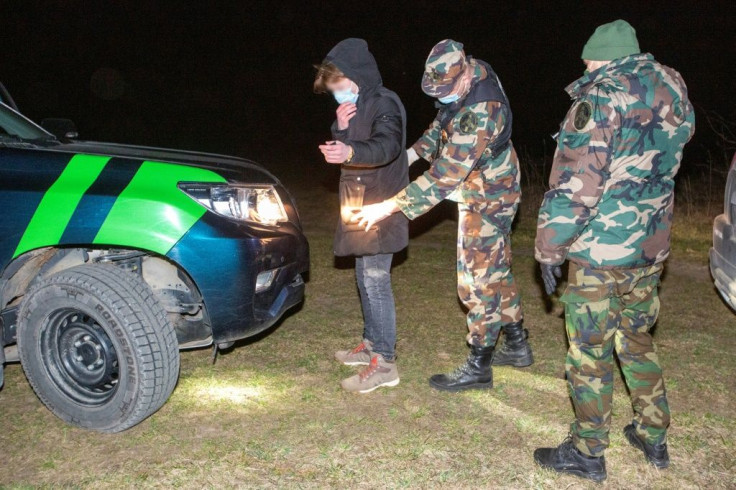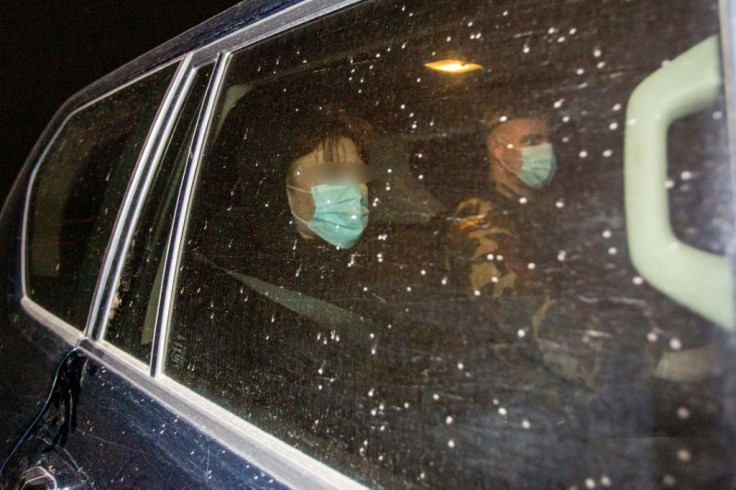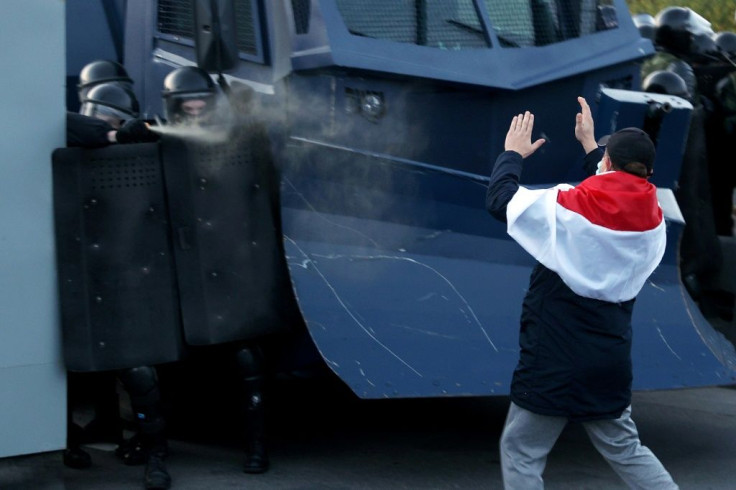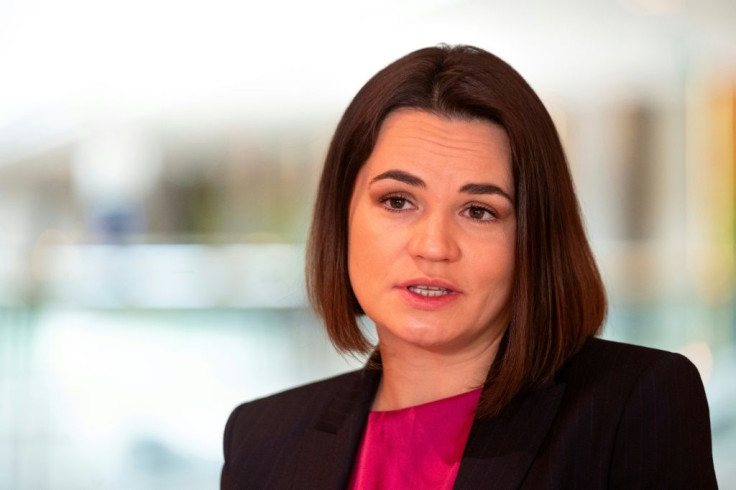Crossing Through Forest, Belarusians Flee 'The Horror'
Shivering on a cool night on the border between Belarus and Lithuania, a 19-year-old Belarusian has just fled his homeland through a forest, dodging regime border guards along the way.
He is one of dozens of Belarusians to have walked across this EU border illegally after a bloody crackdown in Belarus in the wake of a disputed election last August.
"I'm hugely relieved... I've left the horror," the young Belarusian told AFP, minutes after his arrival on Lithuanian soil at night.
The man, who requested that his name not be published, described his journey last month as relatively easy but frightening nonetheless.
In the silent forest he was afraid his every move would alert the border patrols and he had to contend with a bad knee made worse he said from a police beating.
On top of that, a malfunctioning compass meant he "nearly walked back into Belarus twice".

But in the end, it took just 40 minutes to reach Lithuania after being dropped off by car on the Belarusian side -- the border itself was a ditch that could be crossed in a single step.
Lithuania's border guard service said that 37 Belarusians were detected crossing the border illegally between the beginning of August last year and the start of this month.
The government says that it received 142 asylum requests from Belarusians who crossed both legally and illegally over the same period and has so far granted 12 of them.
Lithuania has also taken in hundreds more Belarusians through a "humanitarian corridor", granting six-month visas to allow them to regularise their status in the country.

"Lithuania will always be a safe haven for persecuted foreign citizens," the interior ministry said in a statement.
Belarus saw unprecedented mass protests after last year's elections in which strongman President Alexander Lukashenko claimed a sixth term.
Thousands of demonstrators were detained and more than 400 people given lengthy jail terms.
In the days after the vote that the opposition and Western diplomats said was rigged, Lukashenko's challenger Svetlana Tikhanovskaya also fled to Lithuania.
She has stayed there ever since, lobbying foreign governments and international organisations to help towards her goal of holding new free and fair elections.
The 19-year-old Belarusian's story is typical of many young people caught up in the repression unleashed by Russia-backed Lukashenko, who has ruled Belarus since 1994.

He said that he was arrested for the first time last year even before the presidential vote -- not at any protest but simply for being, he said, in the wrong place at the wrong time.
After that, he began regularly attending demonstrations and was arrested three more times as well as serving brief periods in prison for his activism.
During one arrest, he said a law enforcement officer told him that "they would not stop hassling me".
Following his arrests, the man said that he tried to leave for Ukraine but was turned back and told by Belarusian border guards that he would not be allowed to go until he had done his military service.

Unable to leave the country legally because of pending court cases, ongoing investigations and what they describe as the excuse of military service obligations, Belarusians like the 19-year-old are helped by a discreet network of organisations in making illegal crossings.
"If they decide to cross the border illegally, we will try to help them," said one activist in Lithuania, who declined to be named because of the nature of his activity.
"They have to understand there's a certain risk... that they must be responsible for their actions," he said.
The assistance includes advice on what to take, the best route and landmarks along the way to make it easier.
German Snezhkov is one of those who made it across illegally and has received political asylum in Lithuania.
He said he fled Belarus because he was under criminal investigation for taking part in the protests.
"It was a cold winter night. I had to walk through a canal, the water reaching my knees," the 53-year-old said.
At one point, Snezhkov saw a searchlight from a Belarusian border guard patrol and froze.
"But I knew that there was no going back. Only forward. I put my faith in God and kept on walking."
The searchlight moved on and his family later joined him in Lithuania through the "humanitarian corridor" route.
They all received asylum along with a free language course and he is being helped with his job search.
"When I entered another country, I saw a completely different society. I just felt that the people here are free," he said.
Even the Lithuanian border guards, he said, were kind -- they "let me take my shoes off and dry them. It meant a lot to me."
Back at the frontier, two border guards arrive in a patrol car within a few minutes.
The 19-year-old puts on a face mask in compliance with coronavirus safety regulations.
"Where have you come from?" one of the guards asks, addressing him in Russian.
"From Belarus. I request political asylum," he responds.
The border guard takes his passport, searches him and hands him a pair of latex gloves as a further anti-Covid precaution.
Nervous, the man struggles to put them on.
"Don't worry. Everything is going to be fine," the border guard reassures him.
© Copyright AFP 2024. All rights reserved.





















